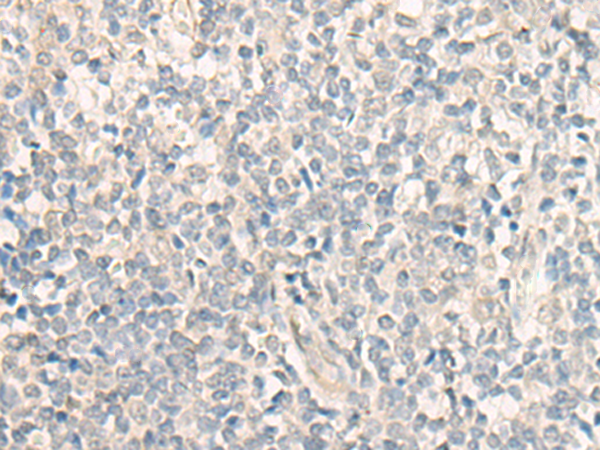
| WB | 咨询技术 | Human,Mouse,Rat |
| IF | 咨询技术 | Human,Mouse,Rat |
| IHC | 1/20-1/100 | Human,Mouse,Rat |
| ICC | 技术咨询 | Human,Mouse,Rat |
| FCM | 咨询技术 | Human,Mouse,Rat |
| Elisa | 1/5000-1/10000 | Human,Mouse,Rat |
| Aliases | DFNA5; ICERE-1 |
| Host/Isotype | Rabbit IgG |
| Antibody Type | Primary antibody |
| Storage | Store at 4°C short term. Aliquot and store at -20°C long term. Avoid freeze/thaw cycles. |
| Species Reactivity | Human |
| Immunogen | Fusion protein of human GSDME |
| Formulation | Purified antibody in PBS with 0.05% sodium azide and 50% glycerol. |
+ +
以下是关于GSDME抗体的3篇代表性文献,包含研究背景及抗体的应用场景:
---
1. **文献名称**:*Gasdermin E suppresses tumour growth by activating anti-tumour immunity*
**作者**:Wang, Y., et al.
**摘要**:该研究揭示了GSDME在肿瘤细胞中通过化疗药物诱导焦亡,释放促炎因子增强抗肿瘤免疫。研究中采用GSDME特异性抗体验证了其在肿瘤组织中的表达缺失及切割形式(C端片段),证实其通过焦亡途径抑制肿瘤生长。
---
2. **文献名称**:*Chemotherapy drugs induce pyroptosis through caspase-3 cleavage of a gasdermin*
**作者**:Rogers, C., et al.
**摘要**:本文发现化疗药物(如顺铂)激活caspase-3切割GSDME,触发癌细胞焦亡。研究通过Western blot(使用GSDME抗体)及基因敲除实验,证明GSDME的N端片段是焦亡执行者,抗体用于检测切割后产物及组织分布。
---
3. **文献名称**:*DFNA5/GSDME regulates pyroptosis in cancer cells and correlates with prognosis in colorectal cancer*
**作者**:Kim, M. S., et al.
**摘要**:该研究通过免疫组化(GSDME抗体)分析结直肠癌患者样本,发现GSDME低表达与不良预后相关。实验证明GSDME介导的焦亡抑制肿瘤进展,抗体用于评估临床样本中蛋白表达水平。
---
**备注**:上述文献发表于2017-2020年间,涉及GSDME抗体的核心应用包括Western blot、免疫组化及表达谱分析。建议通过PubMed或Google Scholar输入标题查询全文及具体抗体品牌(如Cell Signaling Technology的常用货号)。
The gasdermin E (GSDME) protein, a member of the gasdermin family, plays a critical role in pyroptosis, a form of inflammatory programmed cell death. GSDME is expressed in various tissues, including the brain, skin, and gastrointestinal tract. Under normal conditions, GSDME remains autoinhibited but can be activated by caspase-3-mediated cleavage during apoptosis or caspase-1/11 cleavage in pyroptosis, releasing its N-terminal pore-forming domain. These pores disrupt membrane integrity, triggering cell lysis and inflammatory cytokine release. GSDME has dual roles in cancer: it acts as a tumor suppressor by promoting pyroptosis in cancer cells, yet its activation in normal cells may contribute to chemotherapy-induced tissue damage. Dysregulated GSDME expression is also linked to inflammatory diseases and neurodegenerative disorders.
GSDME antibodies are essential tools for detecting protein expression, activation status (via cleaved fragments), and cellular localization. Commonly used in techniques like Western blotting, immunohistochemistry, and immunofluorescence, these antibodies target specific epitopes (e.g., full-length or cleaved N-terminal domains). Their applications span cancer research (e.g., evaluating tumor suppression mechanisms), drug development (screening pyroptosis-inducing agents), and disease pathology studies. However, challenges include cross-reactivity with other gasdermin family members (e.g., GSDMD) and variability in detecting cleaved vs. full-length forms. Validating antibody specificity using knockout cell lines or tissues is critical for reliable results.
×